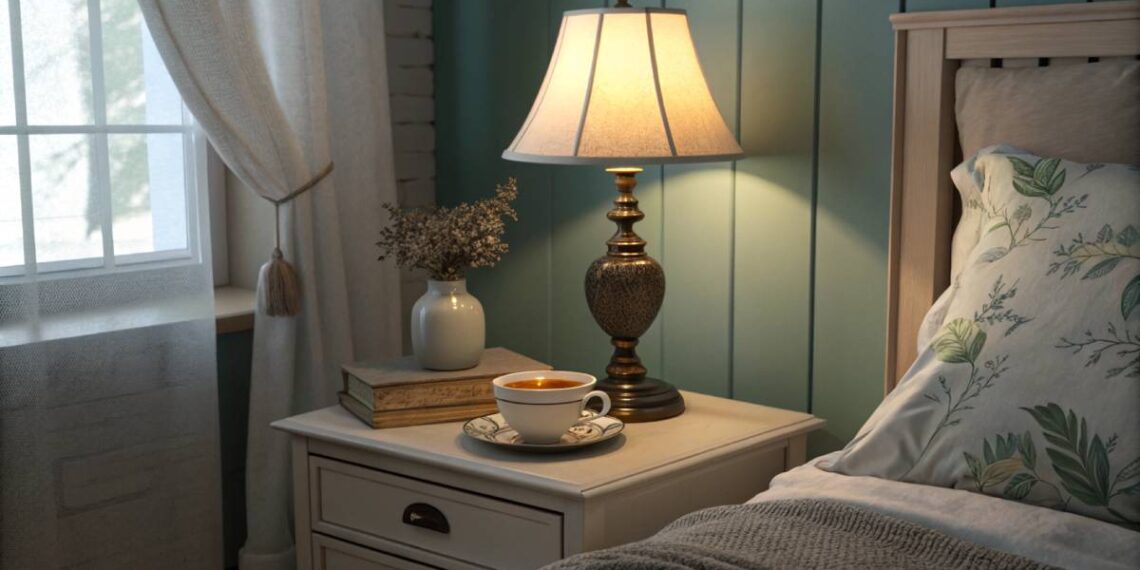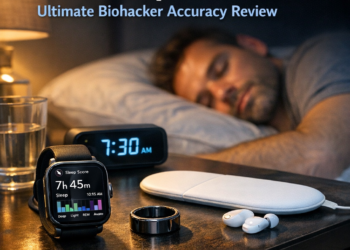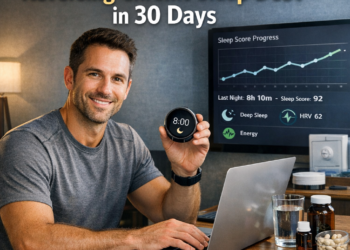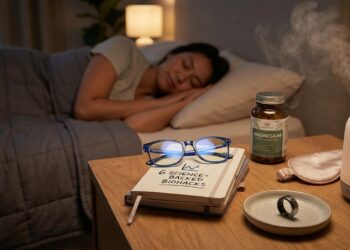Imagine starting each day with a clear mind, boundless energy, and a genuine smile—what if the secret lies in the hours spent snoozing? Quality sleep isn’t just rest; it’s your body’s ultimate reset button. Yet, in our screen-filled world, even the best intentions for restful slumber can unravel. This article dives deep into how digital distractions impact sleep and reveals powerful habits and techniques to reclaim your nightly recharge.
Key Takeaways
- Impact of Digital Devices: Overuse of screens disrupts melatonin production, delays sleep onset, and reduces sleep quality.
- The Blue Light Effect: Blue light from screens tricks the brain into staying alert, tampering with circadian rhythms and suppressing REM sleep.
- Benefits of Digital Detox: Cutting screen time before bed enhances sleep quality, improves mental health, and fosters relaxation.
- Creating a Sleep Sanctuary: A tech-free, optimized bedroom with calming rituals sets the stage for restful nights.
- Mindful Alternatives: Activities like journaling, reading, or practicing mindfulness replace late-night scrolling with relaxation.
Importance of Quality Sleep
Getting good sleep is like finding the key to a treasure chest full of health and happiness. Everyone— from fitness buffs to parents chasing toddlers to grandparents napping on their favorite chair— is waking up to the need for bed habits that boost sleep quality. But the midnight monster that often messes with our snooze? Those shiny screens we can’t seem to put down.
“Sleep is the golden chain that ties health and our bodies together.” – Thomas Dekker
Understanding the Impact of Digital Devices on Sleep
Phones, tablets, laptops— they’re a big part of our lives, but they’re a real party pooper at bedtime. Here’s the no-jargon lowdown: These gizmos can mess up your sleep in more ways than one, like making it tough to hit the hay, waking you up in the middle of the night, and overall shrinking snooze time. Here’s a peek at how digital devices mess with your shuteye:
| Impact on Sleep | What It Does to You |
|---|---|
| More Alert | Staring at screens tricks the brain into staying active when it should be chill. |
| Sleep Cycles Go Haywire | Blue light from devices scrambles the body’s sleep schedule. |
| Less Sleep Time | Late-night social media binges might steal precious sleep hours. |
Over-reliance can flip your body clock upside down, creating a domino effect of crankiness and fatigue. Recognizing this is your first move towards sleeping like a log for better health.
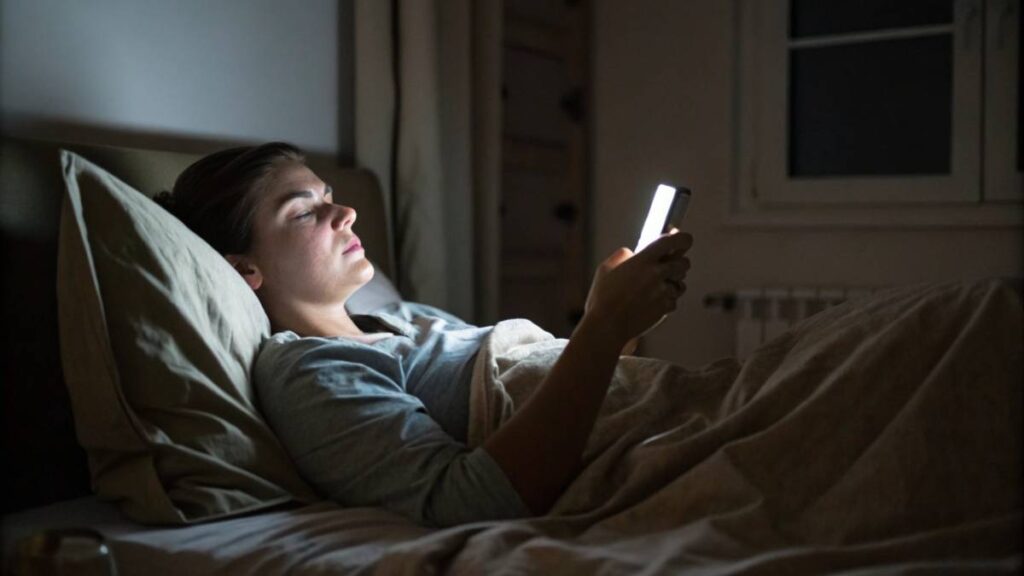
Introduction to Digital Detox for Better Sleep
Chillin’ without screens before bed is all about giving that social media fever a rest. Cutting down on that evening tech time isn’t just a good idea— it’s a game changer for nodding off easier and sleeping better. Whether you’re a night-shift warrior or someone who simply can’t count on sheep anymore, a little digital detox could work wonders.
Ways to power down include:
- Picking a set time to say “night-night” to your devices.
- Banning gadgets from your sleep zone, like your bedroom.
- Making a routine that’s all about winding down— think warm bath, a good book, or sweet tunes.
Doing these things can set up a sweet spot for catching z’s, while boosting how you feel inside and out when you wake up. If sleep’s been dodging you, clues on healthy sleep habits might help to hit the mark.
Effects of Screen Time on Sleep
How Screens Affect Your Sleep Patterns
Screens are picky little monsters when it comes to snooze time. Those bright displays from gadgets like phones and tablets love to steal your z’s. The sneaky blue light they emit messes with your body’s natural sleep signals, making it a pain to drift off into dreamland.
You see, that light tricks your noggin into thinking it’s still daylight, messing with melatonin—the sleepytime hormone. So, if you’re scrolling through cat videos right before bed, you might find yourself in a counting-sheep marathon without much shut-eye. Studies say:
| Effect on Sleep | Percentage of People Reporting Impact |
|---|---|
| Having a hard time falling asleep | 60% |
| Sleeping less overall | 50% |
| Waking up more in the night | 45% |
Cutting back on screen time before bed (think digital detox) can get you back on a sleepy groove. This can help you stick to a regular sleep routine and perk up your health.
Blue Light Disruption and Circadian Rhythms
Your body runs on a schedule, like a trusty internal clock—this is your circadian rhythm. When blue light from screens sneaks into your evenings, it throws a wrench in that clockwork. The result? Confused sleep signals and a bedtime mess.
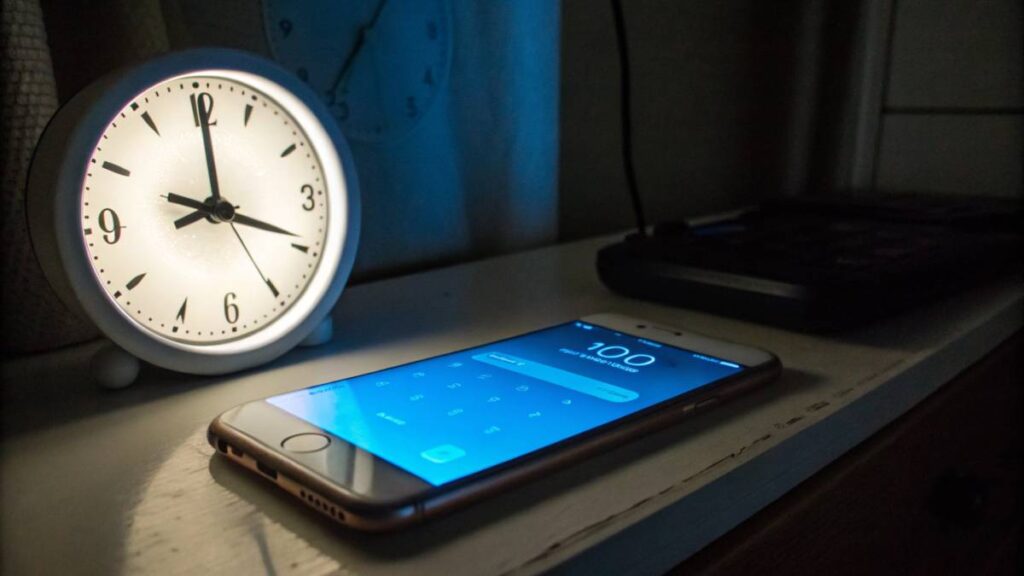
Here’s the 411 on Blue Light’s nighttime pranks:
| Circadian Rhythm Effect | What It Means |
|---|---|
| Trouble hitting the hay | Blue light can shift bedtimes later, making snooze-time tricky. |
| Less dream-heavy REM sleep | Shortens these crucial stages, potentially fogging up your thought process. |
| Daytime sloth-like sleepiness | Nighttime sleep mess wreaking havoc on your daytime pep. |
Knowing how this mischief happens is your first step to reclaiming sweet dreams. Avoid late-night screen time and embrace good sleep habits. Curious? Check out our tips on pre-sleep rituals and explore evening habits for better sleep.
Benefits of a Digital Detox
Taking a break from our screens can really freshen up our sleep and make us feel better overall. When we peel our eyes away from the bright lights of devices, we often find ourselves more relaxed and mentally refreshed, connecting into a more peaceful sleep.
Almost everything will work again if you unplug it for a few minutes, including you.” – Anne Lamott
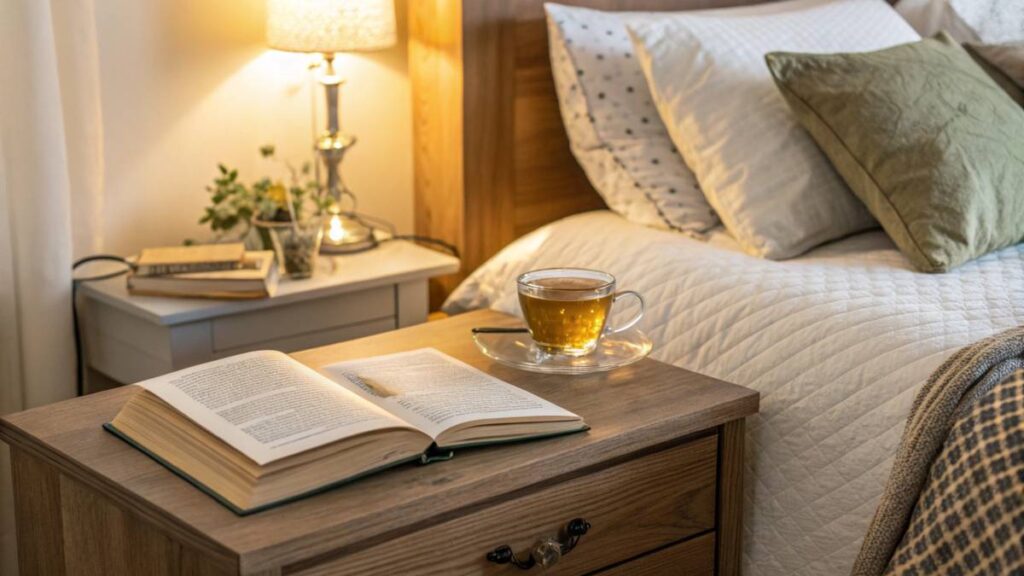
Improved Sleep Quality and Duration
Cutting down the time spent staring at screens, especially before bed, can make a world of difference for our sleep. When our gadgets get a rest, our body slips into a smoother sleep rhythm, giving us a deeper and more restorative snooze. Check out how less screen time scores big for sleep:
| Benefit | Description |
|---|---|
| Fewer Disruptions | Stepping away from screens helps keep nighttime awakenings at bay. |
| Longer Sleep | Folks tend to fall asleep faster and snooze longer. |
| Better Sleep Quality | Deep sleep leaves us feeling fresher and perkier in the morning. |
For useful tips on sticking to a regular sleep schedule, wander over to our piece on a consistent sleep schedule.
Enhanced Relaxation and Mental Health
Putting the brakes on digital overload doesn’t just help with sleep—it boosts your mental game too. Less exposure to the relentless news and social media circus gives our minds a chance to really relax, leading to lower anxiety and stress.
Those diving into the digital detox pool often notice a perk in mindfulness, with benefits like:
| Mental Health Perk | Impact |
|---|---|
| Less Anxiety | Cutting down digital noise takes away that overwhelmed feeling. |
| Better Focus | Fewer screen distractions mean cleaner thoughts and sharper concentration. |
| Mood Booster | Breaking free from online pressures lifts the overall mood. |
For some nifty relaxation tricks, peek at our guide on a pre-sleep routine and the soothing 4-7-8 breathing technique.
Giving digital detox a whirl for sleep can seriously pay off, making it a great move for anyone wanting better rest and less tech-induced stress.
Establishing a Digital Detox Routine
Getting yourself unplugged for better sleep is all about putting that phone down and embracing some mindful bedtime habits. Doing this can turn your bedroom into a snooze-worthy sanctuary that makes each night a dream come true.
Setting Boundaries for Screen Time
Cutting down on screen time is key when it comes to snoozing soundly. Give these handy tips a spin:
| Time Before Bed | What to Do |
|---|---|
| 1-2 hours | Bid farewell to screens—no TVs, tablets, or phones. Try out some chill activities instead. |
| 30-60 minutes | Minimize screen time; start mellowing out with calming routines. |
| 5-10 minutes | Ready for dreamland? Dim the lights and set the mood for sleep. |
Setting a schedule to ease off your devices gives your noggin a chance to power down. Pair this digital detox with a regular sleep schedule for even better ZZZs.
Creating a Tech-Free Bedtime Ritual
Craft a feel-good bedtime routine without gadgets to help your body know it’s wind-down time. Check out these activities:
| Activity | Description |
|---|---|
| Reading a book | Opt for good old-fashioned print—no glowing screens here! |
| Relaxing bath or shower | Warm water helps you relax and gear up for sleep. |
| Meditation or deep breathing | Try the 4-7-8 breathing trick to settle your mind. |
| Gentle stretching | Some stretching or easy yoga can zap that built-up tension. |
Cooking up a gadget-free zone before bedtime? Use cozy lighting, peaceful tunes, or even a whiff of pleasant scents. These tricks make drifting off to sleep a breeze, promoting sweet dreams and healthier zzzs.
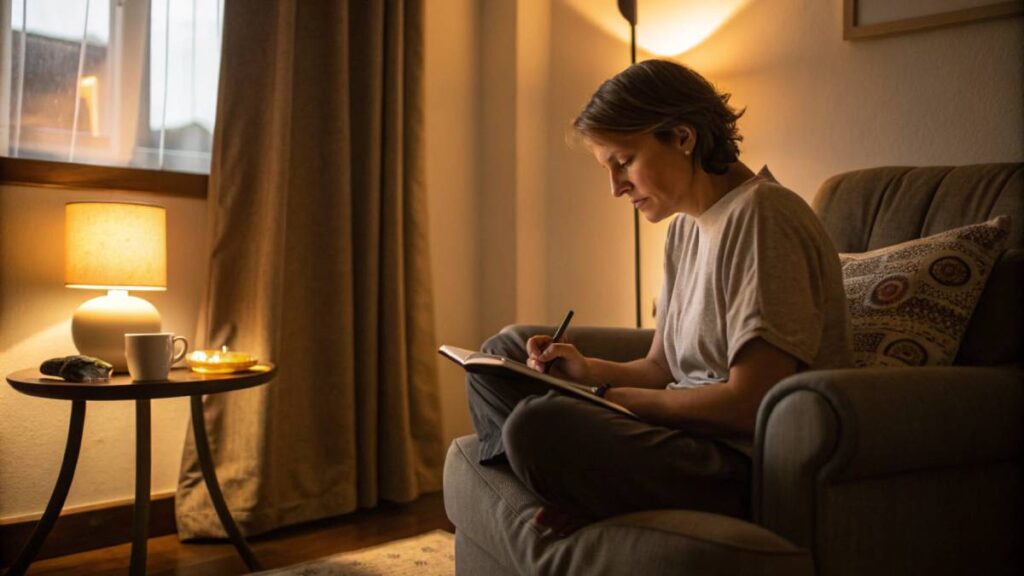
For more tips and tricks on bedtime routines that skyrocket sleep quality, swing by our article on evening habits for better sleep. These nuggets of wisdom can really spruce up your nightly shut-eye and boost your well-being.
Creating a Sleep-Friendly Environment
Getting a good night’s sleep plays a big role in waking up refreshed. Tackling both the space you sleep in and your every day habits can help you catch more zzz’s, especially with a digital detox.
Optimal Bedroom Setup for Restful Sleep
Think of your bedroom as your sleep haven. Here’s what to keep in mind for a peaceful night’s rest:
| Element | What to Do |
|---|---|
| Darkness | Get some blackout curtains to keep light out and help you snooze better. |
| Temperature | Keep it cool, between 60°F – 67°F (15°C – 19°C)—think cozy, not chilly. |
| Noise Control | White noise machines or earplugs can hush those pesky sounds. |
| Bedding Quality | Splurge on comfy mattresses and pillows that support your snooze posture. |
| Aromatherapy | Scents like lavender can set the chill vibe before hitting the hay. |
Keeping distractions out of your sacred sleep space does wonders. No phones in bed, folks—focus on sleep.
Developing Healthy Sleep Habits
The room’s set; now let’s talk habits. They’re just as crucial:
| Healthy Habit | What’s It About? |
|---|---|
| Consistent Sleep Schedule | Hit the hay and rise like clockwork every day—even on weekends. Check out our piece on consistent sleep schedule to dive deeper. |
| Pre-Sleep Routine | Wind down with chill activities like reading or stretching. Need ideas? See our bedtime rituals article. |
| Limit Daytime Naps | Keep naps short and sweet (20-30 min), and dodge those late-day snoozes. Peek at our power naps guide for tips. |
| Avoid Stimulants | Skip that afternoon latte or cig; your nighttime self will thank you. |
| Exercise Regularly | Daytime workouts boost your bedtime bliss. Learn how in exercise and sleep quality. |
Tweaking these habits can change your snooze game. Keep an eye on your sleep routines to make sure they’re soothing you to dreamland. The right environment and consistent daily habits can make all the difference in catching quality rest.
Alternative Activities for Better Sleep
Looking to catch some quality zzz’s? Your approach could be as simple as swapping that pre-sleep chaos for some chill-out activities. We’ve got stuff here that’ll have you snoozing in no time—think relaxation and mindfulness magic.
Relaxing Pre-Sleep Rituals
Consistency, folks! It’s about setting a routine that screams “Hey, it’s bedtime!” Check out these foolproof wind-down moves:
| Activity | What’s the Deal? | How Long? |
|---|---|---|
| Reading | Dive into a chill book to melt stress away. | 20-30 minutes |
| Warm Bath or Shower | Soak your troubles down the drain—good for sleepy vibes. | 15-20 minutes |
| Gentle Stretching | Ease that tension with some easy-breezy stretches. | 10-15 minutes |
| Herbal Tea | Sip some no-caf herbal brew and sigh into snooze land. | 5-10 minutes |
| Journaling | Scribble down your mind masala to peace out. | 10-15 minutes |
Get those vibes going with a nightly routine that whispers sleep. For extra tips, peek at our snoozy secrets in bedtime rituals.
Mindfulness Practices for Sleep Enhancement
Mindfulness isn’t just a buzzword—it’s your ticket to freeing that bustling brain. Let’s dive into some laid-back mind tricks:
| Trick | What It Does | Why It’s Awesome |
|---|---|---|
| 4-7-8 Breathing | Breathe, hold, exhale. Rinse and repeat for zen. | Kicks anxiety to the curb, soothes nerves |
| Meditation | Follow along and let peace reign. | Sharpens focus, wipes stress |
| Progressive Muscle Relaxation | Flex, relax, repeat—bye-bye tension. | Wakes you up to your own body, chills you |
| Visualization | Dream up calm scenes to hustle those worries away. | Boosts happy vibes, calms jitters |
| Mindfulness Apps | Sleep meditation in your pocket—trusty guide. | Handy tips, sweet dreams support |
Check out more on that rad 4-7-8 technique in our special article. Weaving these mindful moments into your day can polish your sleep game and wave goodbye to digital chaos.
Mix these sleep-friendly moves into your evening beat and you’ll be out like a light. Setting a chill, mindful scene can seriously transform how you sleep at night. Sweet dreams!
Tracking Your Progress
Getting a good night’s sleep without digital distractions? It’s the dream, right? But it’s also something we can totally make happen. Let’s see how we can shake things up for the better.
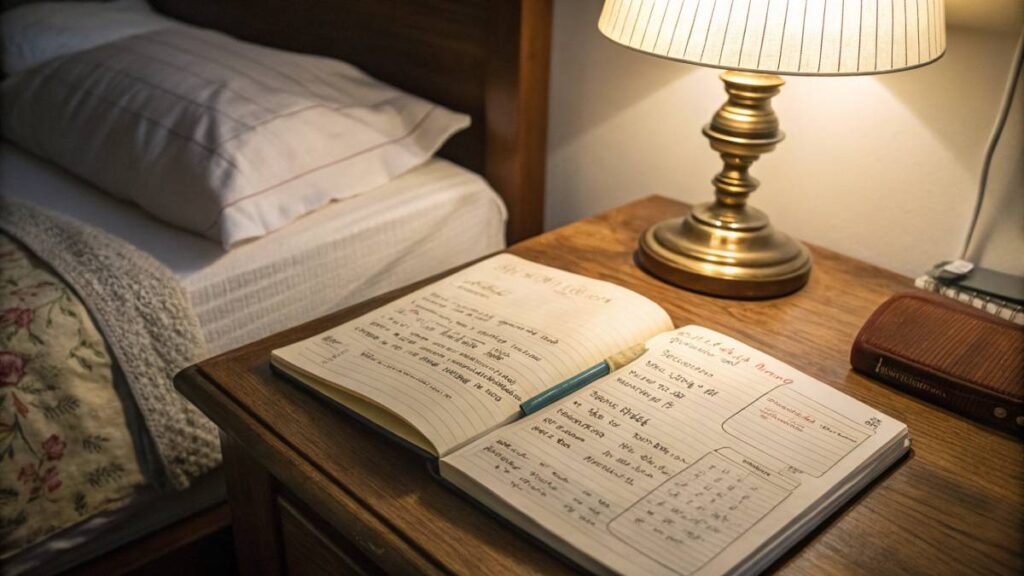
Monitoring Your Sleep Patterns
To nail down how well this digital detox is working, keeping an eye on sleep habits is key. Swap smart screens for smart tracking—you can use old-school sleep diaries, fancy gadgets, or handy-dandy apps. Check it out:
| Day | Sleep Duration | Quality (1-10) | Screen Time Before Bed |
|---|---|---|---|
| Monday | 7 hours | 7 | 1 hour |
| Tuesday | 6.5 hours | 5 | 2 hours |
| Wednesday | 8 hours | 8 | 30 minutes |
| Thursday | 6 hours | 4 | 2.5 hours |
| Friday | 7.5 hours | 6 | 1 hour |
Spot the trends! Notice more yawns after more screens? Jot down those sleepy stats to see when screen time messes with bedtime mojo. Need more deets? Check out sleep journaling; it’s got all the tracking tips you’ll ever need.
Adjusting Your Digital Detox Routine
Once you’ve got the 411 on your sleep, it’s tweak time! Maybe your phone’s the bedtime villain, or maybe your room’s got the wrong vibes. Whatever it is, we’ve got some ideas to shake things up:
| Adjustment | Description |
|---|---|
| Decrease Screen Time | Cut device use to 30 minutes before bedtime. |
| Establish Tech-Free Zones | Set up device-free spots at home. |
| Incorporate Relaxation Techniques | Experiment with the 4-7-8 breathing technique or mindfulness before bed. |
| Shift Bedtime | Push bedtime earlier by 15 minutes a night until the sweet spot’s found. |
| Use Sleep Trackers | Check out the best sleep trackers for more insights. |
Making these kinds of changes could really boost how well—and how long—you sleep. For even more ways to snooze like a champ, look at our tips on evening habits for better sleep.
Stay on top of your sleep story, tweak those digital dos and don’ts, and soon you’ll be hitting the sheets like a pro, feeling way more rested and ready for anything.
Conclusion
Recharge Your Life with Digital-Free Sleep
In a world full of distractions, reclaiming quality sleep starts with intentional habits. Limiting screen time, embracing soothing rituals, and creating a sleep-friendly environment can transform your nights and energize your days. By prioritizing restful slumber, you invest in better health, sharper focus, and a happier, more productive you. Sweet dreams await—ready to power down for them?
FAQs
What is the effect of screen time on sleep quality?
Screen time before bed disrupts melatonin production, making it harder to fall asleep and reducing overall sleep quality.
How does blue light affect sleep patterns?
Blue light from devices tricks your brain into thinking it’s daytime, delaying sleep and shortening restorative REM cycles.
What are some effective pre-sleep rituals?
Reading a book, journaling, meditating, or enjoying a warm bath can help you unwind and prepare for restful sleep.
Why is a digital detox important for better sleep?
Reducing screen exposure before bed allows your body to maintain natural sleep rhythms, improving both sleep quality and mental well-being.
How can I create a sleep-friendly environment?
Opt for blackout curtains, maintain a cool room temperature, use comfortable bedding, and eliminate screens from the bedroom.

